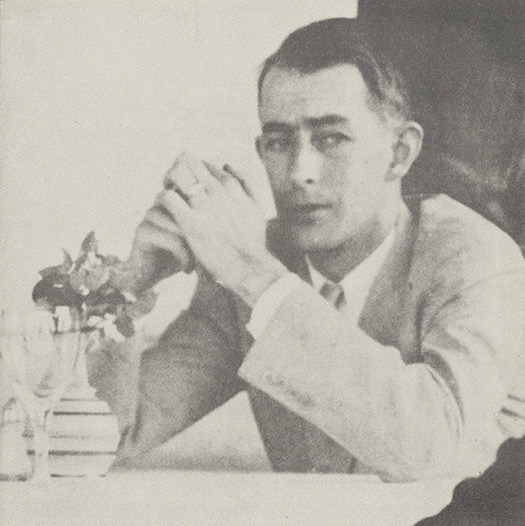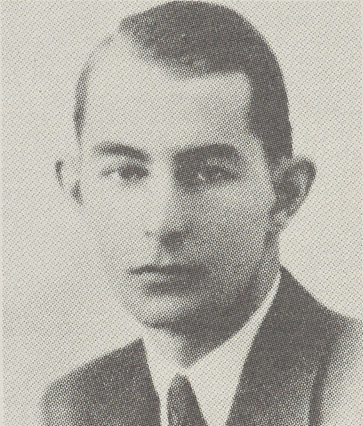A life of art and design. He dedicated his fund at The Trust to scholarships.
William H. Berri (1907-1961)

When William Berri left the bulk of his estate for scholarships, it was in keeping with one of the traits his friends remembered most—a desire to help and cheer others. He may not have always been cheerful himself, because a boating accident at the prime of life left him often in pain. But he never mentioned it. Instead, he tried to see to it that his acquaintances enjoyed life. If this meant helping people out financially, his generosity was unobtrusive and spontaneous. “Once he decided he liked you,” a friend recalls, “Bill couldn’t do enough for you.” His scholarships are a natural extension of his generosity.
William Berri was born in 1907 in Brooklyn, New York, where his paternal grandfather, for whom he was named, was prominent in civic affairs. The elder William Berri owned a carpet factory, then developed typesetting machines and became publisher of the Brooklyn Standard Union. He founded the Kings County Trust Co., was a member of the New York State Board of Regents and, when Brooklyn became a borough of New York City, he was one of the signers of the incorporation. And he was keenly interested in politics. William Howard Taft used to visit the Berri home occasionally while he was president, and a photo shows the young William Berri in President Taft’s ample arms.
But the grandson did not go into politics or journalism—and neither did his father, who instead helped explore the Arctic with Adm. Robert Peary. The younger William Berri was perhaps too shy, unassuming and retiring for these professions. An introvert, he found the arts more appealing. As a teenager, William sang in a choir and played the organ. Not long after graduating from Hackley, a boys’ preparatory school in Tarrytown, New York, he started a business designing and manufacturing high-quality contemporary furniture. He was among the first in New York City to get excited by modern interior design and to sell modern furniture. A man of excellent taste, he also imported objets d’art. Because he had inherited wealth, he did not have to support himself with these ventures, but his associates said he could have done well in art and made it a career.

William’s sensitive side was counterbalanced by a restless energy that craved action and found an outlet in sports. The faster and riskier the sport, the more he liked it. But his desire for speed nearly killed him. When he was in his early 30s, he tried to break a speed record racing his stock motorboat around Manhattan. The boat hit a driftwood log, and the accident injured his back so badly that his tall, thin frame was somewhat bent for the rest of his life. He could never again pursue any demanding activity. The man of action had to become a spectator. But it never separated him from sports he loved. He became a good friend of Gar Wood, a world champion motorboat speedster. At his Bobo Kennels, he raised boxers and Great Danes that won numerous prizes, including some at the Westminster Dog Show. On a Virginia farm, he stabled racehorses that were ridden by top jockeys such as Eddie Arcaro and Don Meade. And, blending his interests in art and sports, he owned a fine collection of C.W. Anderson paintings and prints of horses.
What he particularly enjoyed was cruising in his boat in search of big gamefish—blue and white marlin and sailfish. He knew every harbor in the Bahamas, “and when we’d come into port,” a friend remembered, “he could tell you about every boat there, her construction, and her good and bad points. He’d have made a good naval architect.”
Yet, sports were but one of his many interests. He spoke fluent French and read a great deal—almost anything. One moment it might be an architectural magazine, the next a whodunit. And he took a serious interest in art, movies, and the theater. His many friends covered a wide range—from sports writers to businessmen, from a fishing guide in Florida to a nightclub owner in New York’s Greenwich Village. “He was just naturally democratic,” another friend said. “He didn’t care who you were or what your background was. If he liked you, you were his friend, and that was that.”